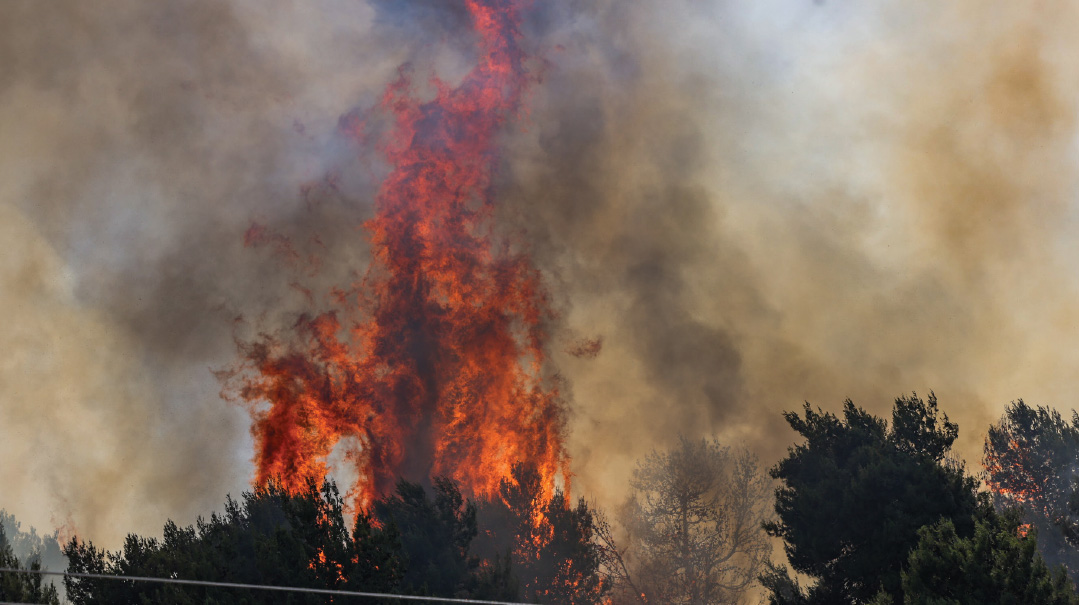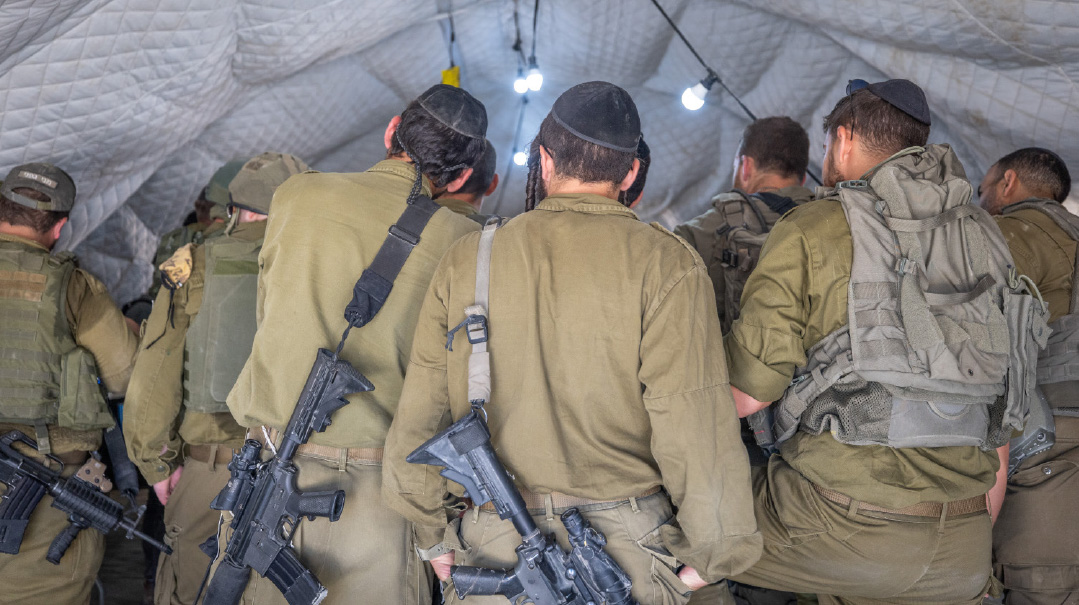Bibi Should Do Nothing

Bibi’s foot-dragging is perfectly suited for the key challenge in the year ahead, which is to do nothing grandiose

Photo: Flash90
Israelis discovered last week that violence can be healing. Watching and re-watching the shaky bodycam footage as commandos rescued the four hostages from their Gaza prisons was like therapy for a traumatized country. At last, a win. Something out of the old playbook. “Like Entebbe,” enthused the military’s chief spokesman, Daniel Hagari, as details poured out about weeks of undercover surveillance and the feat of arms produced by the special forces who effected the rescue.
Along with an insight into Yamam commando tactics, though, average Israelis learned something less cheering: how far Israel is from asserting control over Gaza. This was not, after all, distant Uganda. The hostages were held just miles from their homes, in territory that has been swarming with IDF forces for months. Yet it took hundreds of intelligence operatives working alongside elite special forces to mount a rescue that succeeded by a hairbreadth, with open siyata d’Shmaya.
The rescue of the four hostages highlighted that not only does Hamas rule the Gaza underworld — it remains sovereign above ground too. The deaths of 11 soldiers in combat this Sunday was further confirmation that the IDF’s raid-and-retreat strategy over recent months won’t defeat the terror army.
It’s all compounding a sense that, after eight months of fighting, the army is floundering. The previous strategy of intense warfare demanded economically crippling levels of mobilization, and brought Israel to the brink of rupture with the United States over Palestinian casualties and questions of “the day after” in Gaza. And it didn’t even address Israel’s biggest threat: the assault by Hezbollah on the north.
The country desperately needs a course correction, and the outlines are broadly clear: with no long-term solution in sight for Gaza, and an all-out offensive there off the table, the “Gaza Question” should be put on the back burner.
That means raids and localized combat should be used to grind down Hamas’s remaining battalions. Meanwhile, resources should be shifted to the north. It may be that a show of force by the bulk of the IDF arrayed on the northern border will be enough to bring Hezbollah and their Iranian backers to their senses. But to be credible, there needs to be a societal and political consensus that all-out war with Hezbollah is an option.
We’re far short of that. Ugly politics has returned, this time focused on whether hostage rescue takes priority over defeating Hamas, or vice versa. Glaring failings of the IDF’s counter-drone capabilities have left the military exposed, and an urgent solution — on the scale of the Iron Dome breakthrough — is needed. There are off-the-shelf drone countermeasures available elsewhere, and there are reports that a laser defense system could be active next year. So despite the fact that large sections of Israel’s north are uninhabitable, a key ingredient is time.
There could well be merit in the calls by leading right-wing pundit Amit Segal for a temporary break in the war effort. He told the New York Times’ Ezra Klein this week, “We have to take a pause for a year to build a new army with new figures, maybe to go to an election, build a coalition that will reflect the consensus of the real threats to Israel — with all due respect to the debate about the judicial reform or social justice — to build an army that is well equipped and well trained to fight the Iranian octopus and to prepare for the next war, which will come.”
Elections are unlikely, as my colleague Avi Blum lays out this week, but were they to come, I would hope that Netanyahu be re-elected. Regardless of his eventual fate as it relates to the failings of October 7, he should finish the job. That’s because the key attribute that an Israeli leader needs now is the ability to resist the enormous pressures — foreign and domestic — to take the easy route out in this war.
Under its current leadership and ably abetted by timid Europeans, America wants to play the ostrich and pretend that the current war is nothing more than a dust-up with Hamas over some settlements and Gaza policy. Sticking its head firmly in the sand, the Biden administration wants to deal with Hamas and Hezbollah as discrete issues demanding limited solutions, rather than as part of a regional confrontation that demands a regional coalition against Tehran.
Against that background, it would be disastrous for Israel to agree to any cease-fire agreements that leave Hamas in place, or Hezbollah to fight at will another day. Yet absent a change of thinking in Western capitals, that is precisely what Israel will be pressured to do in order to bring peace. Many Israeli voters seem to think that Benny Gantz — seen as the Mr. Decent of Israeli politics, a kind of Israeli version of Joe Biden himself — could replace Bibi. But does he have the strength to resist American pressure?
Although he is often accused of dithering and indecisiveness, Bibi’s foot-dragging is perfectly suited for the key challenge in the year ahead, which is to do nothing grandiose. The country needs to rearm, and rebuild for the long road ahead. It can’t afford far-reaching peace deals.
Netanyahu’s modus operandi — doing nothing, and doing it well — was perfected over eight excruciating years of the Obama administration. Living to fight another day is Bibi’s motto, both in politics and international affairs; for the next year, it ought to be the country’s, too.
Like the Jewish People by the Yam Suf, with the Egyptians behind, snakes all around, and no choice but to go forward trusting Hashem, post-October 7 Israel is faced with certain realities. There is no going back to the pre-October 7 existence, whatever pressure America exerts to that end. To the right and left are the hard facts of Hamas and Hezbollah power, which no amount of official bluster can obscure. The path ahead is unclear, except for the fact that in Israel’s decades-in-the-making showdown with Iran, the only way forward is faith.
(Originally featured in Mishpacha, Issue 1016)
Oops! We could not locate your form.







